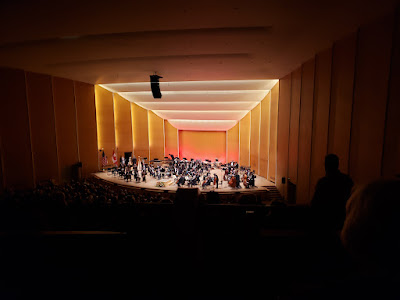In honor of Beethoven’s birthday, here are some pieces I think everyone should hear and get to know. This list is highly subjective! It is music I personally love, big and small. And I am designing this list with newbies in mind. This is all music I cannot imagine anybody not loving.
So, classical music newbies out there, allow me to introduce you to your new obsession. For seasoned Beethoven fans, I would love your input. What pieces would you put on this list?
Also, what’s your favorite Beethoven portrait? The one at the top of the post is one of a collection of vintage Beethoven portraits I have been saving over the years. I will have to look up who painted it, I am ashamed to say. I did not realize I had been building up this giant collection. It has gotten kind of out of hand. We will have to explore my Beethoven portrait gallery another day.
For now, let’s get started with the music. On my Substack publication -- it's free to read -- I include videos with the selections. The videos are short and easy to love! Take a peek!
Here is what I would recommend.
The Allegretto from the Seventh Symphony. This the piece heard in the movie “The King’s Speech” which came out some years ago, about King George VI and how he lost his stutter. He makes his speech while this plays in the background. Give yourself the treat of listening to this without having to hear the speech over it. Incredible music, just so beautiful.
The third and fourth movements of the famous Fifth Symphony. You know the first movement, now listen to the last one, and then you can soar like an eagle and get to know the whole thing. The thrilling point in this music comes when the third movement bursts into the fourth movement, the finale. You have to hear both together to get the effect. My video features the conductor Herbert von Karajan who always delivered a lot of drama.
The Andante Cantabile from the “Archduke” Trio. That beautiful theme! Beethoven sometimes does not get enough credit for the sheer loveliness of his music. You do not have to be angry all the time and he was not.
The slow movement of the “Appassionata” sonata. I love playing the “Appassionata” myself. I studied it with Stephen Manes and we really worked it over and now I have this close relationship with it. I will have to play it myself at some point, make a video or something. However for now Daniel Barenboim will have to do.
Let’s lighten things up! Beethoven’s song “The Flea” shows his sense of humor. This song and I go way back. I loved it when I was a kid. The video I post on Substack, I never saw it before and I was delighted to find it. This is my favorite singer, Dietrich Fischer-Dieskau. We corresponded briefly when I was a kid because I wrote him a letter and he was nice enough to write me back. He looks very young here, and on piano is the legendary British pianist Gerald Moore. Best of all, there are subtitles, so you can follow along with this hilarious song.
“Then all his siblings also / Became big shots at court.” The translation is good. The song ends up with us rejoicing that we are allowed to swat and kill fleas when they sting us. There is at least one recording where they bring in a chorus for that last line. I will have to look for it.
We could easily do a whole list of performers, vintage and contemporary, performing “The Flea.” I think one of these days I will do that.
Finally I suggest a song titled simply, in German, “I love you.” Cole Porter wrote a song simply called “I Love You” because it was such a challenge to take such a simple hackneyed phrase and write a song around it. Here is what Beethoven did with it. I could not find a video with an English translation but it’s a pretty straightforward love song. Just enjoy.
For whatever reason all these videos are turning up with Korean subtitles. This song must be big in Korea!
Haha… I tried just now to link to a video featuring a young Japanese soprano but my hand was slapped and I was told, “Playback on other websites has been disabled by the video owner.” Fine, take it to your grave. That is a phrase I got from my brother George.
There are other Beethoven pieces I want to include however they cannot be so easily edited into small portions. So let’s leave it here, at seven, and consider this a start, should anyone want a Part 2.
That last song, “I Love You,” is a good one to finish up with.
Beethoven, we love you!
.jpg)












